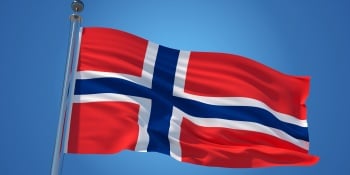
The “Rainbow Europe” report published on 14 May [1] of this year by ILGA Europe, an organisation which promotes radical political demands of the LGBT movement, contains plenty of false information regarding the situation of the people with homosexual tendencies, gender identity disorders or hermaphroditic traits who live in Poland. This information concerns both facts (e.g. misrepresentation of statements issued by politicians) and, above all, Polish law. The issue that raises particular doubts is the fact that ILGA's report is based on the radical demands of the LGBT movement, which are presented as human rights in a completely unauthorised manner. The constructions presented by its authors are not grounded in any applicable international laws or treaties that codify fundamental human rights. This analysis will discuss the elementary errors made by the authors of the report, including factual, methodological and legal ones.
I. False claims about certain facts, statements and circumstances regarding the matters described in the Report
The “Annual Review of the Human Rights Situation of Lesbian, Gay, Bisexual, Trans, and Intersex People in Poland covering the period from January to December 2019,” which is part of the Report, describes some events and circumstances that are supposed to serve as evidence confirming that the rights of people with homosexual tendencies, gender identity disorders or hermaphroditic traits are being violated in a selective and biased manner.[2] A separate part of this analysis will be devoted to the unfounded claims presented by the LGBT activists as human rights. On the other hand, events and statements intended to prove the supposed violations occurring in Poland were assigned to all categories of “rights” identified by the authors. The review was divided into 12 categories: access to goods and services, bias-motivated speech, bias-motivated violence, bodily integrity, education, equality and non-discrimination, family, freedom of assembly, freedom of expression, legal recognition of gender, as well as participation in public, political and cultural life.
The “access to goods and services” category includes a reference to the widely known case of a printer from Łódz, who refused to print LGBT-themed materials. In this case, the Constitutional Tribunal ruled that classifying this type of refusal as an offence is unconstitutional.[3] ILGA’s report correctly states that the Tribunal's ruling concerns a broader category of refusal and not just refusal because of one’s beliefs and the assessment of a particular ideology or sexual orientation. Nevertheless, merely citing this case in the context of a given category may suggest that it concerned access of non-heterosexual persons to specific services, in this case, the printing service. This was not the case. These people were refused the service because of the nature of the materials that were to be printed, not because of their sexual orientation (which the printer may not have even known). Therefore, the reason for refusing to provide the service was the type of service demanded and not the characteristics of the would-be customers. Article 32, section 2 of the Constitution of the Republic of Poland states that “No one shall be discriminated against in political, social or economic life for any reason whatsoever.” Hence, the constitutional article that prohibits discrimination in Poland does not enumerate all grounds for discrimination that are deemed unacceptable, which makes this protection measure against discrimination in Poland as broad as possible. In addition, there are also specific legal acts in Poland that explicitly prohibit discrimination based on sexual orientation. Therefore, citing “the case of the printer from Łódź” as an example that illustrates the situation of the so-called “LGBTI people” and their access to goods and services in Poland is not only false by its very implication, but it also does not reflect the Polish legal reality whatsoever.
The “bias-motivated speech” category includes several examples of manipulation, as well as presenting some politicians’ statements in a biased manner. Jarosław Kaczyński, leader of the Law and Justice party, supposedly said that “the support of the President of Warsaw for LGBT people is an attack on children and families.” However, the authors of the report did not provide any source confirming that Jarosław Kaczyński had indeed said that. One can presume that in this case, ILGA’s text refers to Jarosław Kaczyński’s statement from the “Poland as the heart of Europe” convention held by the Law and Justice party in Jasionka near Rzeszów: “But if we are to focus on the family, then we must pay attention to the fact that we are also facing a major issue here, a major difficulty, a major threat – this threat is an attack on the family, one carried out in the worst possible way, because in fact, it is an attack on children, which can hardly be called education; this is not education, it is social engineering that is meant to change people.”[4] Kaczyński did not refer to the “support for LGBT people,” but rather the so-called “LGBT+ declaration,” and more specifically, a document called: “Warsaw urban policy for the LGBT+ community.” Kaczyński’s speech referred to an announcement concerning the introduction of sex education in its most permissive form, as promoted by the World Health Organisation, in all schools in Warsaw, which was included in this document.
The report presents the actions of some Polish local governments (incorrectly referred to by the authors as cities) in a dishonest way, with the authors claiming that some of them declared their territories “LGBT-free zones.” It should be emphasized that the only declarations issued by local government units in Poland regarding this matter concerned freedom from the “LGBT ideology.” The distinction between the “freedom from LGBT ideology” and the “freedom from LGBT” is extremely important – no local government unit in Poland has ever issued any declaration regarding the latter, which in itself was a completely deliberate move. After all, these activities are not about discriminating against people belonging to or identifying with this movement, but rather distancing a given institution from the ideology promoted by them (regarding adoption, marriage privileges, promiscuous lifestyle, flexible approach to human sexuality and promoting permissive sex education).
Some significant distortions are also present in the fragments concerning the awards allegedly granted by the city of Lublin to officials who oppose the LGBT ideology. It is necessary to emphasize that no such distinctions were ever awarded by any Polish city. The thing that the authors of the report may have had in mind was the awards granted by the Lublin Voivode for “actions aimed at protecting the institution of the family against threats from destructive ideologies.” Equating these two things may indicate that the authors of the text were either misled or that they themselves recognise the LGBT ideology as something destructive to the institution of the family.
Attention should also be drawn to the biased manner in which a statement by Rev. prof. Marek Jędraszewski, Archbishop of Kraków, was presented; one in which he used the phrase “rainbow plague.” Once again, the authors do not seem to distinguish between statements directed against specific people and those criticizing a certain political and social ideology or actions aimed at implementing such an ideology. It is worth emphasizing that the recording with the Archbishop's homily, which had been uploaded to YouTube, was removed by the service due to accusations of “spreading hatred”; however, it was later restored and a YouTube representative in Poland admitted that the decision to remove it was incorrect.[5] Knowing the context, as well as the full text of the Archbishop's statement and the final verdict of the YouTube administrators, it is difficult to accept the legitimacy of the claim that Archbishop Jędraszewski’s statement was “bias-motivated speech.”
The authors of the report described the circumstances surrounding the organisation of meetings for people who identify with the LGBT movement, as well as the events occurring at these meetings, in a dishonest way. At the very beginning, the authors put forth an unreasonable claim that the “hateful rhetoric from the government and the Church, and violence at Pride marches went hand-in-hand this year [2019].” Firstly, the very act of slandering the Polish government and the Church due to their supposed use of “hateful rhetoric” is a major and unsubstantiated argument. Secondly, suggesting that the alleged acts of violence during the so-called “equality parades” went “hand-in-hand” with this allegedly used rhetoric implies that both the Church and the Polish government are responsible for possible acts of physical violence. In addition, the examples of violations of freedom of assembly that are provided include the “Equality March,” held on 20 July last year, which was accompanied by numerous social protests. ILGA’s report states that “several participants [of the event] were injured and beaten.” However, none of the persons who had been supposedly injured have ever reported this to the police.[6] Additionally, in response to an inquiry submitted by MP Marek Jakubiak, both the Independent City Hospital in Białystok and the University Children's Clinical Hospital in Białystok stated that no person had ever attended either hospital with symptoms indicating the use of violence in connection with the march.[7] Based on the information provided by the Police and the hospitals and with no other documented sources available, the information about some of the Białystok “Equality March” participants getting attacked and beaten should be considered untrue.
Does accusation equal “guilt”?
The review also includes a very serious logical fallacy, which is a classic example of manipulation, i.e. an argumentum ad verecundiam, an appeal to a certain authority, which is meant to confirm that the thesis presented is true without providing any actual evidence to support it. This is the case with the last example in the “bias-motivated speech” category, which talks about a request by the European Parliament that called on Poland to revoke the resolutions regarding the LGBT ideology which were supposedly issued by the local governments, and which was simultaneously a call to violate the Polish constitutional principles regarding the protection of the local government sovereignty.
Two subsequent categories, i.e. “bias-motivated violence” and “bodily integrity”, are subject to this logical fallacy as well. The first one mentions that the UN Committee Against Torture urged Poland to take all measures necessary to combat violence against “LGBT people.” The second states that unspecified “international bodies” called on Poland to ban conversion therapy. In what way is this related to the actual situation of the groups included in the review’s title? The authors fail to answer this question.
II. Incorrect calculation methodology regarding the protection standards for “LGBTI” people in Poland and Europe.
The theses contained in ILGA’s report regarding the alleged violations of human rights in Poland cannot be justified based on the current legal situation. Firstly, they are based on an incorrectly formulated structure of human rights, which has no legal grounding in any international treaties or other documents adopted jointly by the European states.
This faulty methodology was used to create categories, based on which a so-called “score” was calculated for each country.[8]
The unclear concepts of “sexual orientation” and “gender identity” seem to be the core of the entire report. The report itself does not include any definitions regarding them. In other places, LGBT groups define the concept of “sexual orientation” as “the ability of every person to experience tenderness, deep emotional ties and sexual attraction, as well as to enter into intimate and sexual relationships with people of the same or different sex, or with representatives of more than one sex.” [9] According to this definition, “sexual orientation” is supposed to be a category that encompasses virtually all close interpersonal relationships, i.e. “deep emotional bonds,” “tenderness” and “intimacy” of anyone with anyone (including parents' love for their children and friendship between two men). The entire range of human relationships is to simply be reduced to “sexual orientation.” In short, since the definition proposed covers such a wide spectrum of interpersonal relations, it does not actually explain anything.
In turn, the concept of “gender identity” is not based on any legally binding international law documents. The only exception in this regard is the controversial Istanbul Convention,[10] which few countries have decided to ratify,[11] and whose application in Poland is limited only to substantive law. After the Convention had been ratified in 2015, Poland stated that all of its provisions should be interpreted in accordance with the Polish Constitution.[12] There is also increasing talk of the Polish government’s plans to denounce it completely.[13]
It has already been demonstrated many times that the concept of “gender” is ideological and is derived directly from radical feminism and Marxist dialectic.[14] The concept of “gender identity,” a simple consequence of adopting the idea that gender is a social construct, assumes that human gender depends solely on the subjective feelings of a given person.
The assessment of the status of people who identify with the LGBT subculture for each country was calculated based on 6 different areas. It is necessary to make a few concise comments on each of them.
For LGBT groups, one of the basic means of achieving political goals is the broadly understood anti-discrimination laws. Firstly, these groups regularly present the principles of equality and non-discrimination in a completely distorted manner. The Constitutional Tribunal has repeatedly emphasized that “the prohibition of discrimination arising from art. 32 section 2 of the Polish Constitution does not equal a prohibition on differentiating between the situations of legal entities. It is, however, a prohibition on shaping the situation of similar legal entities in a different and unjustified manner in the process of establishing and applying the law.” [15]Based on this justification, different treatment simply does not constitute discrimination. Meanwhile, LGBT activists constantly try to convince the public that justified different treatment and discrimination are the same things.
Secondly, the incorporation of concepts such as “sexual orientation” and “gender identity” into anti-discrimination regulations will make it possible to use them as tools to punish and discipline people whose views are different from those held by the LGBT groups. Such laws consider justified behaviour to be discrimination. For example, if a baker refuses to prepare a wedding cake for a same-sex couple, he will be sued on charges of discrimination based on sexual orientation (even though he is ready to prepare any other cake for the same customers). If a Catholic adoption agency tries to provide children with a home in which they would be brought up by a traditional family, i.e. a man and a woman, and not by two women or two men, it will be punished because of laws that prohibit discrimination due to sexual orientation. Similarly, if a university does not allow men who identify as women to enter women's toilets or changing rooms, it will be accused of discrimination on grounds of “gender identity.” In short, the expansion of anti-discrimination laws concerning sexual orientation and gender identity undermines fundamental freedoms and drastically limits numerous human rights which are guaranteed expressis verbis by both the Polish Constitution and international treaties.
The assessment of Poland contained in ILGA’s document was also based on demands regarding family law put forth by LGBT activists, which raise many doubts as well. These demands are not grounded in any binding international law documents. First of all, no document that would impose a legal obligation on states to grant marriage privileges to same-sex couples exists as of today. No country has pledged to institutionalise such relationships either. Secondly, the criteria for assessing the status of persons belonging to LGBT groups based on the possibility of adopting children, the use of in vitro procedures and artificial insemination, all of which are included in the report, are even more unfounded. International treaties indicate that being raised by a natural family is in the child’s best interest, and since the family is the basic social unit, it requires special protection from the state as well. Both the Universal Declaration of Human Rights (art. 16) and the International Covenant on Civil and Political Rights (art. 23) consider the family to be the basic social unit, formed on the basis of a voluntary relationship. The natural and universal nature of the family is also confirmed by the International Covenant on Economic, Social and Cultural Rights (art. 10), as well as the constitutions and legal systems of numerous countries around the world.[16]
Moreover, including such claims in the catalogue of demands aimed at doing away with discrimination raises doubts. Treating a given person in a different way in different situations is not tantamount to discrimination, especially since the life situations of people who remain in traditional and same-sex relationships should be considered fundamentally different.[17]
It should also be mentioned that there is already a number of solutions available in the Polish law that permit legal regulation of some fields of life for people who do not remain in formal relationships (available to same- and different-sex couples alike), ranging from matters related to inheritance,[18] all the way to the possibility of authorising a specific person to receive medical information about his or her partner.[19] For example, according to the Supreme Court’s ruling from 28 November 2012, a person who remains in a homosexual relationship and lives with his or her partner in a rented apartment has the right to continue the lease on preferential terms after the partner’s death.[20] Same-sex couples may also receive remuneration[21] and deliveries both at their place of residence and at the post office,[22] keep a joint bank account,[23] designate their partner as the person to which the insurance company will pay compensation in the event of death[24] and take out a joint loan at a bank.[25] The lack of preferential solutions for this group of people in the Polish legal system results from the constitutional preference for a natural family, based on the union of a man and a woman (art. 18), which is fully in line with the fundamental values protected by international law treaties.
The criteria regarding laws and policies against hate crime and hate speech due to sexual orientation, gender identity and hermaphroditism which are included in the report's description should also be considered unjustified. Due to unknown reasons that the authors fail to explain, the Polish law allegedly does not protect persons identifying with or belonging to the above groups against hate crimes and hate speech. However, should they ever suffer due to offensive, vulgar or aggressive behaviour or incitement to violence, these people, just like anyone else, can take advantage of a whole range of legal provisions, including those that protect from insults, defamation, criminal threats and violation of bodily integrity, as well as those that guarantee personal rights. In addition, both art. 53 (2) and art. 55 of the Polish Penal Code[26]already indicate that the court should take into account the subjective motivation of the perpetrator and the circumstances of the case when imposing a penalty (including the fact that a given crime was committed due to a prejudice against the characteristics of the victim).
The currently applicable international law does not include any binding regulations concerning “hate speech.” Additionally, the existing, non-binding definitions created by various bodies are full of vague and imprecise concepts. This leaves so much room for flexible, particularistic and subjective interpretation that it becomes an explicit threat to the freedom of public debate. Therefore, it is rather unsurprising that the provisions on “hate speech” are often used to censor public debate and punish people with different views than those held by the political circles that support LGBT groups.
Area: Gender recognition and bodily integrity
The list of demands presented in this section includes ones detached from the common sense-based understanding of gender to such a degree, that merely quoting them is enough to make a point. LGBT activists claim that the “legal recognition” of gender, i.e. its legal “change,” should take place “solely based on the wishes of the person concerned,” without any participation of “third parties, e.g. courts and doctors,” and without any “diagnosis/psychologist’s opinion.” In other words, LGBT ideologists consider gender something that one should be able to “change” just as easily as clothing. Activists belonging to such sexual subcultures demand that anyone who does not accept this be treated as a sick person (someone suffering from a “phobia”).
It is worth noting that no binding international treaty includes any provisions that would legally oblige states to recognise someone’s gender change without an appropriate medical opinion and surgical intervention. Even the European Court of Human Rights, which is known for its very progressive interpretation of the law, clearly stated in one of its rulings that the requirements regarding the compulsory diagnosis for people applying for gender reassignment and the requirement to divorce their current spouse should this procedure be completed, which are imposed by some state authorities, are in line with the provisions of the European Convention on Human Rights and Fundamental Freedoms.[27]
The freedom of assembly and the right to asylum for persons belonging to the groups described in the report are not restricted in any way by Polish law. LGBT activists can take advantage of the same rights to organise assemblies as all other citizens. As previously stated, the freedom to organise peaceful gatherings is guaranteed by the Polish Constitution (art. 57), with further provisions being provided in the Act of 24 July on assemblies.[28] Moreover, under art. 260 of the Penal Code, any person who hinders or prevents the organisation of a lawful meeting, gathering or march by using violence or unlawful threat commits an offence and is subject to penalty. Practice shows that the Polish state does not limit the possibility of organising such gatherings by the LGBT communities in any way, with the numerous marches and parades that took place in various Polish cities in the recent years being the best proof of this.
III. Summary
To sum up, Polish law already provides equal protection for all citizens, regardless of their gender or sexual preferences. This follows expressly from the Polish Constitution, which states that everyone has the right to life (art. 38), personal freedom (art. 41), protection of privacy and family life (art. 47), as well as the freedom to express opinions (54(1)), freedom of assembly (Article 57), freedom of association (art. 58(1)) and the right of asylum (art. 37(1)). Therefore, the factors indicated in the report are no reason to include any preferential protection mechanism for such persons in the Polish legal system.
The arguments put forth by the authors of the report are based on an attempt to equate the opposition to LGBT ideology with an attack on people with homosexual tendencies, gender identity disorders and hermaphroditic traits. This assumption is incorrect. In addition, as already demonstrated, the fundamental guarantees of rights and freedoms, non-discrimination, equal treatment and protection against violence all result from the constitutional protection that all citizens of the Republic of Poland are subject to, regardless of any factors and individual attributes. Therefore, the purpose of introducing the mechanisms proposed in ILGA’s report is not ensuring equality, but rather granting special privileges to this particular social group, an act that goes against the fundamental values included in multiple international treaties and constitutions of many different countries in the world.
Authors:
Karolina Pawłowska – Director of the Ordo Iuris International Law Centre
Rafał Dorosiński – Director of the Ordo Iuris Legal Analysis Centre
Filip Furman – Director of the Ordo Iuris Social Sciences and Bioethics Centre
[1] https://www.ilga-europe.org/resources/news/latest-news/rainbow-map-2020-points-make-or-break-moment-lgbti-rights-europe, [dostęp: 29.05.2020]
[2] https://www.ilga-europe.org/sites/default/files/2020/poland.pdf, [dostęp: 18.05.2020]
[3] Zob. Wyrok Trybunału Konstytucyjnego z dnia 26 czerwca 2019 r. K 16/17 Odmowa świadczenia usługi ze względu na wolność sumienia i religii usługodawcy
[4] https://wiadomosci.dziennik.pl/polityka/artykuly/593174,kaczynski-pis-polityka-lgbt-konwencja-rodzina-dzieci-trzaskowski-geje.html [dostęp: 18.05.2020]
[5] https://tygodnik.dorzeczy.pl/kraj/110281/YouTube-przywraca-homilie-abp-Jedraszewskiego-usunieta-z-kanalu-Radia-Maryja-Pokretne-tlumaczenie-platformy.html [dostęp: 18.05.2020]
[6] https://www.tvp.info/43604759/kgp-po-marszu-w-bialymstoku-nie-zglosil-sie-nikt-poszkodowany [dostęp: 18.05.2020]
[7]https://twitter.com/jakubiak_marek/status/1159403480420950017?ref_src=twsrc%5Etfw%7Ctwcamp%5Etweetembed%7Ctwterm%5E1159403480420950017&ref_url=https%3A%2F%2Fwww.rp.pl%2FSpoleczenstwo%2F190819394-Marsz-Rownosci-w-Bialymstoku-Ilu-bylo-poszkodowanych.html [dostęp: 18.05.2020]
[8] https://rainbow-europe.org/about, [dostęp: 29.05.20]
[9] Definicja zaprezentowana w projekcie ustawy o zakazie praktyk konwersyjnych. Por: R. Dorosiński, Problematyka terapii reparatywnej na tle projektu ustawy o zakazie praktyk konwersyjnych, https://ordoiuris.pl/wolnosc-sumienia/problematyka-terapii-reparatywnej-na-tle-projektu-ustawy-o-zakazie-praktyk#_ftn3
[11] Ostatnio za niezgodną z obowiązującym prawem i fundamentalnymi wartościami uznały ją m. in. parlamenty Słowacji i Węgier.
[12] Pełna treść zastrzeżeń I deklaracji wystosowanych przez Polskę podczas ratyfikacji Konwencji dostępna tutaj: https://www.coe.int/en/web/conventions/full-list/-/conventions/treaty/210/declarations?p_auth=4ebx9lxL , dostęp: 20 maja 2020 r.
[13] Wypowiedź wiceministra sprawiedliwości – M. Romanowskiego – z 13 maja 2020 r. , zob więcej: https://www.tvp.info/48047409/genderowy-belkot-wiceminister-sprawiedliwosci-wypowiemy-konwencje-stambulska . Dostęp: 20 maja 2020 r.
[14] Zob. Np. H. Bradley, Gender, Warszawa 2008 r., s. 142. ; R. P. Thong, Myśl Feministyczna. Wprowadzenie, Warszawa 2002 r. , s. 86 , 106.
[15] Wyrok Trybunału Konstytucyjnego z 15 lipca 2010 r., sygn. akt K 63/07, OTK-A 2010/6/60, pkt III.6.1.
[16] Przykładowe wyliczenie wraz z przywołaniem treści stosownych przepisów znajduje się np. tutaj: http://worldfamilydeclaration.org/WFD#fn1, dostęp: 19 maja 2020 r.
[17] Wyrok Sądu Najwyższego z dnia 5 maja 2010 r.
I PK 201/09
[18] Art. 931-933 Kodeksu Cywilmego
[19] Wyrok Sądu Najwyższego z dnia 10 maja 2012 r., sygn. akt IV CSK 416/11, art. 31 par. 2 Ustawy z dnia 5 grudnia 1996 r. o zawodach lekarza i dentysty, Dz.U. 1997 nr 28 poz. 152.
[20] Uchwała Sądu Najwyższego z dnia 28 listopada 2012 r., III CZP 68/12.
[21] Na podstawie art. 98 KC w zw. z art. 300 Kodeksu pracy pracownik może upoważnić do odbioru wynagrodzenia inną osobę, udzielając jej w tym celu pełnomocnictwa.
[22] Art. 37 ust. 2 ustawy z dnia 23 listopada 2012 r. Prawo pocztowe. Zgodnie z tym przepisem, przesyłka pocztowa może być wydana ze skutkiem doręczenia 1) adresatowi, 2) przedstawicielowi ustawowemu adresata lub pełnomocnikowi adresata upoważnionemu na podstawie pełnomocnictwa udzielonego na zasadach ogólnych lub na podstawie pełnomocnictwa pocztowego, 3) osobie pełnoletniej zamieszkałej razem z adresatem (w placówce pocztowej, po złożeniu na piśmie oświadczenia o zamieszkiwaniu razem z adresatem).
[23] Art. 51 ustawy Prawo bankowe pozwala na prowadzenie tzw. rachunku wspólnego.
[24] Art. 831 § 1 KC
[25] Przepisy nie wymagają by osoby zaciągające kredyt były małżeństwem.
[26] Ustawa z dnia 6 czerwca 1997 r. Kodeks karny, Dz.U. 1997 Nr 88 poz. 553 z późn. Zm.
[27] AP, Garon and Nicot v France App Nos. 79885/12, 52471/13 and 52596/13 (ECtHR, 6 April 2017); Hämäläinen v Finland [2015] 1 FCR 379, [88]-[89].
[28] Ustawa z dnia 24 lipca 2015 r. - Prawo o zgromadzeniach, Dz.U. 2015 poz. 1485 .

Family and marriage
• Representatives of the Ordo Iuris Institute will participate in the Pan-African Conference on Family Values, which will begin on May 12 in Nairobi, the capital of Kenya. Ordo Iuris is a partner of the event.
• The theme of the conference will be promoting and protecting family values in difficult times.
• The event will be attended by politicians, scientists, and representatives of social and religious organizations from Africa, Europe, and the USA.

Family and marriage
On the 27th of May 2020, two representatives of the European Commission – Mr Joost Korte, Director-General of the Directorate General for Employment, Social Affairs and Inclusion and Marc Lemaître, Director-General of the Directorate General for Region

Family and marriage
“Gender” is a relatively new term, the origins of which lie in some psychological and sociological theories. It has its special place in the second and third wave of feminist concepts. It should be emphasised that this term carries a strong ideological charge.

Family and marriage
1. Introductory remarks